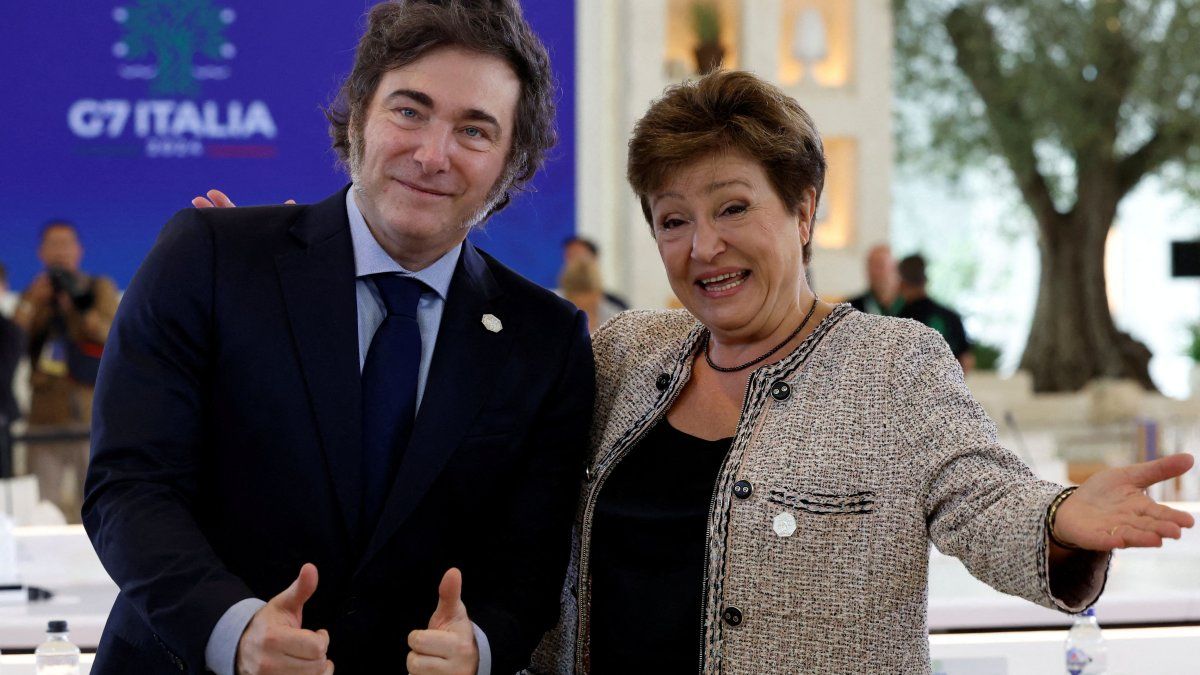The Government accelerated its road map to arrive at an agreement with the International Monetary Fund (IMF) And, despite the fact that the agency did not announce an understanding at the staff, the president Javier Milei He signed a DNU that enables him to seal a new program. With the definition increasingly, Analysts warn about three risks: the use of funds, the dollarization of pre -electoral portfolios and the growth of exposure to a privileged creditor.
The Minister of Economy, Luis Caputoput date: “The disbursements will arrive in the first four -month period”He said repeatedly. For that to happen, The agreement at the staff must still be announced and then be ratified by the Board of Directorswhich is formed by the representatives of the countries that make up the body.
In any case, Javier Milei has already clarified that the agreement will include the disbursement of fresh funds. On this point, The scenario is uncertain in terms of amounts, schedule and uses. In what there is no doubt is that The Government needs to strengthen reservations: The gross are at their lowest point since September, the net is still negative.
Besides, The Central Bank continues to sell currencies to intervene in financial dollars And it has been in consecutive months of negative current account for eight months. The last, January, was for more than US $ 1,656 million, according to the data provided by the entity itself.
Can you intervene?
Given this scenario, beyond the accounting arguments exhibited by the Government, for the economic team it becomes indispensable to have fresh dollars, in the face of the vulnerabilities of the local environment and the volatility that is recorded internationally.
However, some analysts warn that in the agreement there could be restrictions regarding the use of funds. For example, the Alyc Bull Market, linked to Ramiro Marra, warned in his latest report that the Government will not be able to count on those dollars when intervening in financial markets.
The same document indicates that currencies “They will be used to cancel debts with the BCRA and the IMF“In addition, it risks some specific deadlines, he says that the first repurchase of letters will be on June 1, 2025, for US $ 10,000 million nominal and that only in 2029 the large maturities would return due to figures close to US $ 12,000 million.
Pre -electoral and devaluation risk
“You go to the bottom when you are wrong, not when you are fine,” said Emmanuel Álvarez Agis, head of the PXQ consultant in an interview this Thursday. The economist discredits the accounting argument presented by the Executive and focuses on the centrality of conversations with the Fund in Foreign Financing that will imply.
The last report that the firm turned to its clients details The impact they will have for the Treasury and Balance Accounts of the Central Bank Fresh funds, but warns: “It is relevant to think what happens the day after, as is evident, these reserves are used (with or without authorization of the IMF) to intervene in the CCL market, that intervention takes place via a reduction of reserves that goes against the balance of the private sector.”
On this point, he finished: “The risk of this agreement is that, if the dollarization of pre-electoral portfolio is of magnitude, the paradox could occur that the BCRA reduces its reserves, but the treasure continues with its debt to the IMF, As much as the debt is paid with fiscal surplus, if the BCRA reservation position is weak, these payments will require a future or a reduction in direct consumption or indirectly by means of a depreciation of the weight. ”
Tension between creditors
Another point until now is little explored is the effect it could have for the rest of the creditors that Argentina increases its exhibition with The background, which, being a multilateral organism, has privileges above the rest, such as do not make removes before an eventual restructuring.
On this he put the magnifying glass Miguel Pesce, that as former president of the Central Bank he was in the front row of the negotiations of the agreement signed in 2022. “When one increases debt with an organism such as the fund, which is a privileged creditor, this can add a problem to access the market ”he said in dialogue with Radio 10.
In that sense, he stressed that “if the debt with the IMF is increased by US $ 20,000 million, this relegates the rest of the creditors who do not have the privilege of the IMF and It becomes more difficult for you to lend you, that you go to the voluntary market to place debt because the right of the rest of the creditors is affected. ”
Asked about this point, Daniel Marx, executive director of Quantum Finance, added that “There is always a tension between privileged creditors and those that are not. Some can see it as a potential conflict, but others can see that it is good that an actor appears that disburse funds and mitigate the associated risks “and highlighted:” I think that the latter is given more value today than the first. “
The most skeptical economists remember that on other occasions the programs with the fund arrived under the premise that they would allow to recover access to the markets and far from fulfilling that goal. The government insists: “This time is different.”
Source: Ambito




